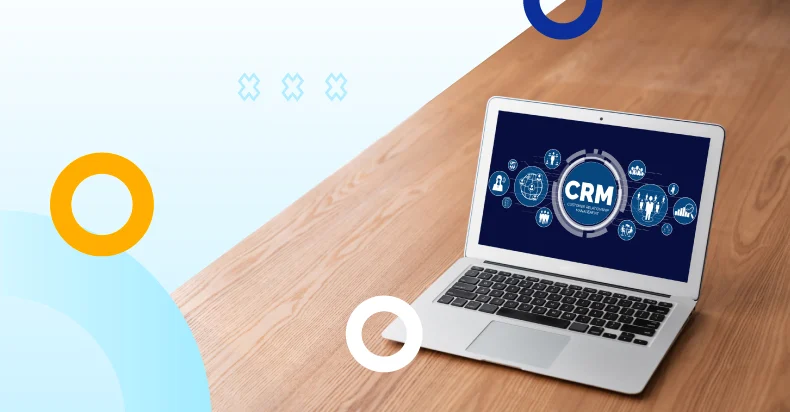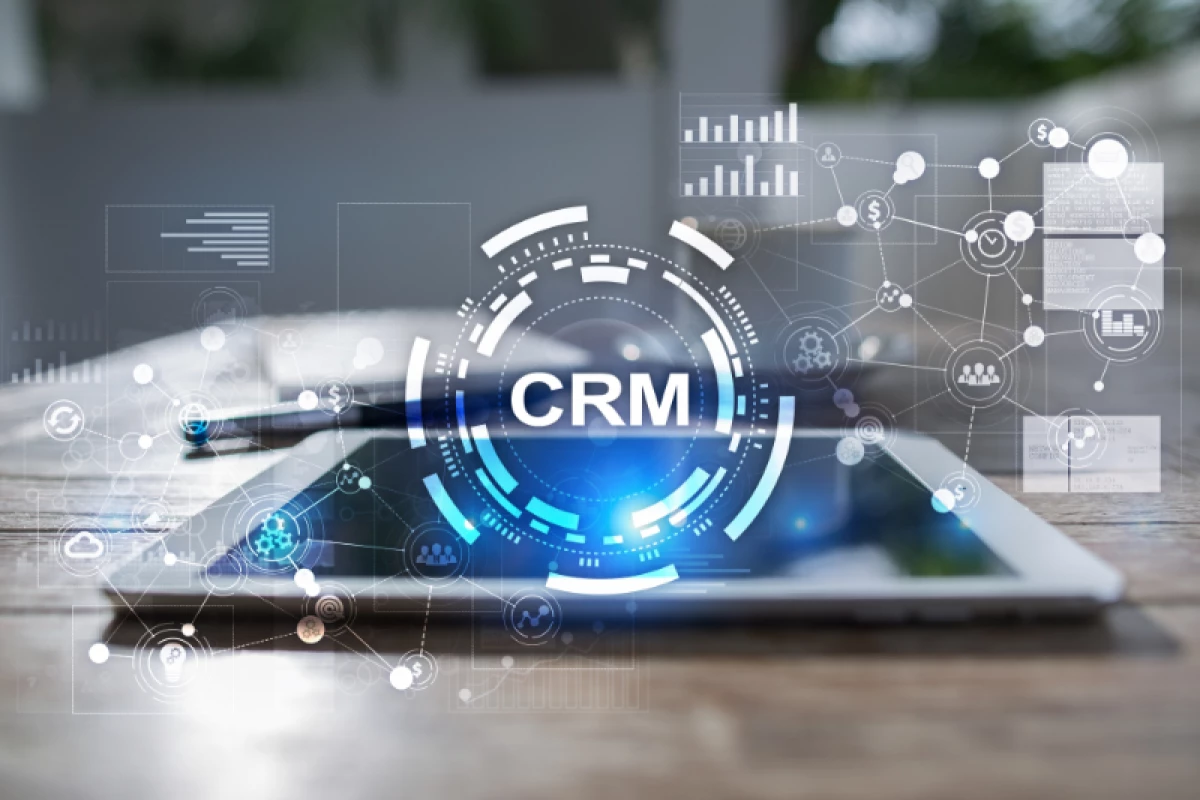CRM software (customer relationship management) is a tool designed to help your organization offer customers a unique and seamless experience and build better relationships by providing a complete picture of all customer interactions, by tracking sales, organizing and prioritizing your opportunities, and facilitating collaboration between different teams.
Benefits of Customer Relationship Management – Strategy
The idea of how a business approaches customer interactions and builds relationships with them forms its Customer Relationship Management strategy. This involves collecting customer data and analyzing the history of customer interactions to provide better service and build better relationships with customers that ultimately drive sales and revenue.
Why do you need a CRM strategy?
Without a proper Customer Relationship Management strategy, your customer information will be scattered, and it will be difficult to keep track of all the touch points and interactions you have with a particular customer. This leads to a continuous sales cycle, with a generic and sub-par customer experience.
When you have a strong Customer Relationship Management strategy for your business, it allows you to build personal connections with customers, which further helps you identify their needs and requirements and provide them with personalized services.
Building
Good customer relationships are based on a consistent and personalized experience offered by your organization, regardless of where the customer is in your sales cycle. This means that every team in your organization, from Marketing to Sales Support should offer a consistent experience when interacting with customers.
When a business starts up and you manage all your customer information on spreadsheets, this may be feasible, but not advisable. The amount of time spent on data entry is better spent on bringing in customers and winning deals. This becomes exponentially more complicated as you grow your business and expand your customer base. This is where Customer Relationship Management software comes into play.
Forging good relationships with Customer Relationship Management (CRM) software
The origins of Customer Relationship Management System software can be traced back to the late 80s and early 90s, with the development of Contact Management Systems (CMS), which later evolved into Sales Force Automation (SFA) technology.
As the industry grew, vendors were encouraged to provide a broader set of services to cover everything from marketing to pre-sales and support. Customer relationship management software is designed to remove barriers in customer information by collecting it in a centralized place, to provide a 360º view of all your customer data.
Details such as customer name, email, phone number, and communication preferences, as well as interaction and purchase history, can be made available to help your team reach customers for the right reasons and through the right channels.

Stages in Customer Relationship Management
There are three stages in the CRM system that must be carried out by every corporation, here is an explanation.
1. Acquiring New Customers (Acquired)
To be able to acquire new customers, you must make sure to provide convenience in terms of service to customers when buying and using your products. Then, you can also promote the product by giving a good first impression to customers. Later, customers will have more trust in your company.
2. Adding Value from Customers (Enhanced)
There are two ways to improve relationships with customers, namely by up selling and cross selling. For up selling itself is offering the same product, but has a much better quality. While cross selling is a marketing strategy by offering complementary products to goods that are already owned by customers.
3. Retain Customers (Retain)
To retain customers, you must provide useful service and application support. And also, it can increase the credibility of the company you have. You should also take the time to listen to customers’ opinions or feedback. For example, serving customer dissatisfaction about the products offered. That way, the company can evaluate and improve its service system and application features.
Benefits of Customer Relationship Management in Business
Next, enter the discussion about the benefits of CRM for business needs.
1. Encouraging Customer Loyalty
CRM allows a company to utilize customer information, either from call centers, websites, or through product marketing staff. Providing good service to customers can have positive results for improving your business.
2. Improve Work Operational Efficiency
With CRM, it is able to provide convenience in the process of selling products and services. In addition, it can also reduce the level of risk from the decline in service quality and cash flow burden.
3. Reduce Production Costs
Product sales have a more specific scheme and focus on targeting services to customers. Therefore, the costs incurred will be recorded and displayed in detail.
4. Increase Time to Market
The application of CRM is able to obtain various information such as data on purchasing trends made by customers. Then, it also determines the right time to market a product.
5. Getting Optimal Revenue
By implementing the right CRM system, it can increase customer loyalty, reduce costs, time to market, and increase work efficiency. Which, all of these things are very influential in providing profit (profit) for business people.
Steps to Develop the Right CRM Process
To optimize the business process stages, you can do the following things:
- Determine the company’s vision and goals
- Develop a business strategy
- Improve communication with customers
- Check and evaluate existing business data
- Choosing the right CRM system
Of course, one of the main components in the CRM process is to use the right CRM system for your business. How do you know the right CRM? The right CRM is a system that suits your business needs and is easy to use.
Why your business needs CRM Software?
If you’re struggling to manage your sales, marketing, and customer relationships, it might be time for a sophisticated and comprehensive business software upgrade. If you’re on the fence about adopting a Customer Relationship Management solution, check out these warning signs:
Lack of centralization
It’s hard to make important decisions when your customer data is scattered across excel sheets, business cards, and notes taken during customer meetings. Spending too much time and effort to collate data and make sense of it.
Lack of knowledge
This is a derivative of the first indicator. In the absence of a centralized location for your customer data, sales staff will find it impossible to keep track of every detail as your customer base grows.
Communication failure
Synergy is needed between Marketing, which nurtures leads, and Sales, which closes the deal. Often this lack of information flow disrupts the performance of both teams, as neither knows what the other is doing.
Inability to win deals anywhere
If your sales reps are out in the field, it’s impossible for them to keep everyone involved informed of the latest deal status, or deliver documents such as sales orders and invoices.
Employee turnover costs time and money
When sales reps leave your company, they take with them the relationships they built with customers. Your company needs to invest time and money to train replacements and convey customer preferences to them.
And that’s that Benefits of Customer Relationship Management in Business. From this explanation, do you still doubt CMR? If there is something you don’t understand, you can ask directly through the comments column.
